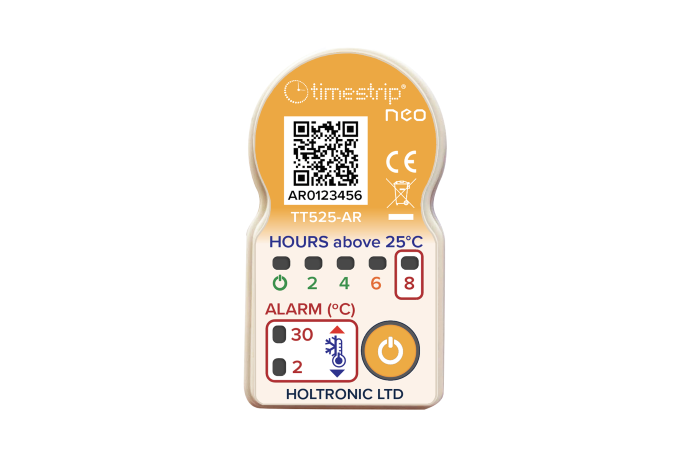Cambridge, UK – Radboud University Medical Center (Radboudumc), a leading institution in sustainable and innovative healthcare, and Timestrip UK, a leading supplier of time and temperature indicators. are spearheading a groundbreaking initiative to address challenges in re-allocating medicines returned unused from patients. A panel of 14 hospitals across The Netherlands is implementing a system involving sealed bags containing oncology medicines and Timestrip neo indicators for drugs dispensed to patients. The neo indicators were selected for their clear irreversible alerts, small size and reliability.
Currently, unused medicines returned by patients are not re-dispensed, leading to wastage and potential delays in treatment. Recognizing the need for a more sustainable approach, researchers at Radboudumc have embarked on a trial to evaluate the practicality of a returns system that ensures the authenticity and proper storage conditions of returned medicines.
The panel of 14 hospitals that have been established to participate in the trial comprises six university hospitals, six teaching hospitals and two general hospitals, When any of the drugs used in the trial are returned to the hospital pharmacy unused, the pharmacists can check that the package has not been interfered with, and that the temperatures incurred during storage and transport have not exceeded specified limits.
A custom neo indicator was developed to monitor three temperature ranges: 2 degC, 25 degC and 30 degC. A series of LEDs on the front of the indicator show clearly when certain temperature limits have been breached. The indicators also show the duration of exposure to 25 degC up to eight hours.
As the neo indicator alerts are clear and irreversible, clinicians can have confidence in the readings, and a further safeguard is included in the form of a QR code on each indicator that can be scanned to provide serial number data for traceability.
Shirley Xie MSc, the Investigator for the trial at Radboudumc, explains: “Using a temperature chip is important in providing the evidence needed during the trial. We needed a simple yet effective device which gives us a visible confirmation of medicine quality.”
The ongoing trial is expected to demonstrate the cost-effectiveness of the proposed system for re-dispensing oncology (and potentially other) medicines, thereby reducing waste. Miss Xie emphasizes the significance of the trial: "As well as the potential improvements in efficiency and patient care from re-dispensing unused drugs of good quality, there is a sustainability benefit associated with the reduced waste."
Radboudumc remains committed to making a significant impact on health and healthcare, and this initiative aligns with their broader mission of advancing healthcare practices for the benefit of patients and the environment.



